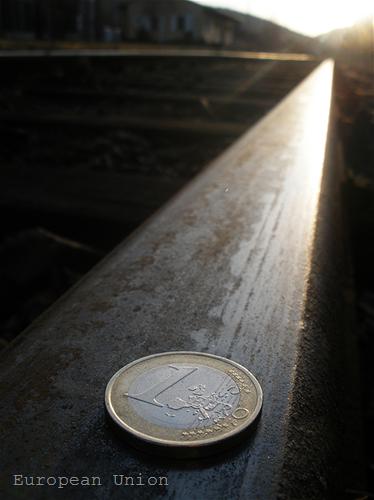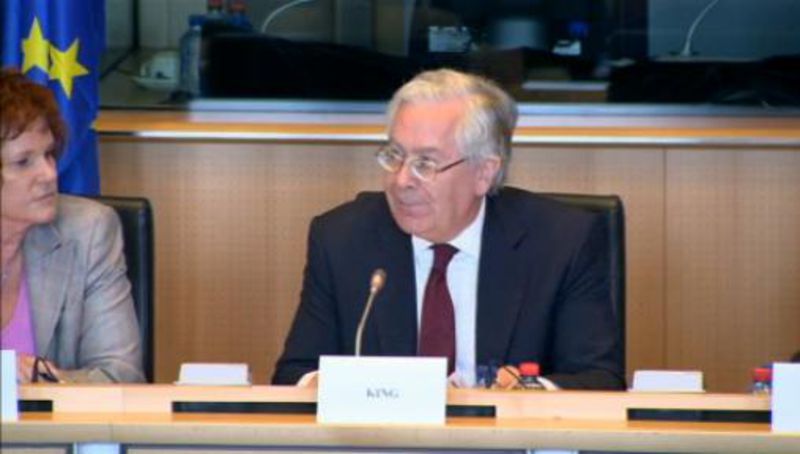GDP will no longer be a measurer of economy
Adelina Marini, September 9, 2009
 The traditional way to measure an economy, the gross domestic product (GDP), is getting a little outdated, according to the European Commission. This is what the website EUobserver writes in an article today, quoting a statement of the Commission. Gross Domestic Product is a measure of a country's economic performance represented by the market value of all final goods and services made in a year. Instead, Brussels wants to come up with a new set of metrics that go beyond just what is valued by markets, and integrates those things that are a little less hard to pin a price tag on such as protecting the environment, an inclusive society and even happiness.
The traditional way to measure an economy, the gross domestic product (GDP), is getting a little outdated, according to the European Commission. This is what the website EUobserver writes in an article today, quoting a statement of the Commission. Gross Domestic Product is a measure of a country's economic performance represented by the market value of all final goods and services made in a year. Instead, Brussels wants to come up with a new set of metrics that go beyond just what is valued by markets, and integrates those things that are a little less hard to pin a price tag on such as protecting the environment, an inclusive society and even happiness.
"GDP was not intended to be a measure of well-being. It doesn't pick up on issues that are vitally important to the quality of our lives such as a clean environment, social cohesion or even how happy people are", the statement says. It is expected in 2010 the Commission to propose an environmental index that will cover areas such as greenhouse gas emissions, loss of natural landscapes, air pollution, water use and waste generation. This would complement rather than replace GDP, the statement points out.
Besides, the Commission says it aims to produce environmental and social data more rapidly. At the moment, this sort of data is usually published after two to three years while key economic figures are released after just a few weeks.
"When a country cuts down all its forests and sells them as timber, this will increase GDP, but in the medium to long term, destroying this natural capital will not be beneficial for the country,  the environment or the people", the environment commissioner Stavros Dimas said after the publication of the document. For example the hurricane Katrina caused some 1,800 deaths and over $100 billion in damages, but the economic activity that followed as a GDP indicator showed positive growth.
the environment or the people", the environment commissioner Stavros Dimas said after the publication of the document. For example the hurricane Katrina caused some 1,800 deaths and over $100 billion in damages, but the economic activity that followed as a GDP indicator showed positive growth.
A lot of economic analysts have been criticizing the GDP as an incorrect measure of the economy for a long time because it doesn't not measure the standard of living and does not include the disparity in incomes between the rich and poor into account and ignores externalities such as damage to the environment.
Some NGOs, quoted by EUobserver, noted that talks on moving beyond GDP have been going on a long time and very little change has occurred.
 The economic aspects of climate change, biodiversity and environment are the issue of the meeting of the EU environment ministers in Stroemstad. At this meeting the economist Pavan Sukhdev will present his estimation about the economic consequences of not dealing with environment issues. "We must incorporate the values of biodiversity and ecosystem services, our Natural Capital, into our National Accounts. As a fundamental first step towards integration, the value of forest carbon stock must begin to be captured in National Accounts. Mainstreaming so-far unreflected ecosystem services and biodiversity benefits for the corporate and public sector is a later", Mr. Sukhdev says.
The economic aspects of climate change, biodiversity and environment are the issue of the meeting of the EU environment ministers in Stroemstad. At this meeting the economist Pavan Sukhdev will present his estimation about the economic consequences of not dealing with environment issues. "We must incorporate the values of biodiversity and ecosystem services, our Natural Capital, into our National Accounts. As a fundamental first step towards integration, the value of forest carbon stock must begin to be captured in National Accounts. Mainstreaming so-far unreflected ecosystem services and biodiversity benefits for the corporate and public sector is a later", Mr. Sukhdev says.
The ecosystem services also should be reported. For example, the economist says, coral reefs protection, the defense to fish nurseries and other services are worth up to $170 bn annually. An estimated half a billion people depend on them for livelihoods and more than a quarter of all marine fish species are dependent on coral reefs. "The economic consequences are significant, but so are the social and humanitarian ones. A simple cost-benefit analysis alone will fail to capture the ethical dimensions of international climate and biodiversity policy decisions now and in the coming years and decades - especially in respect to an ecosystem at a climatic tipping point", Mr. Sukhdev concludes.
 | © European Union
| © European Union | © European Union
| © European Union | © European Union
| © European Union